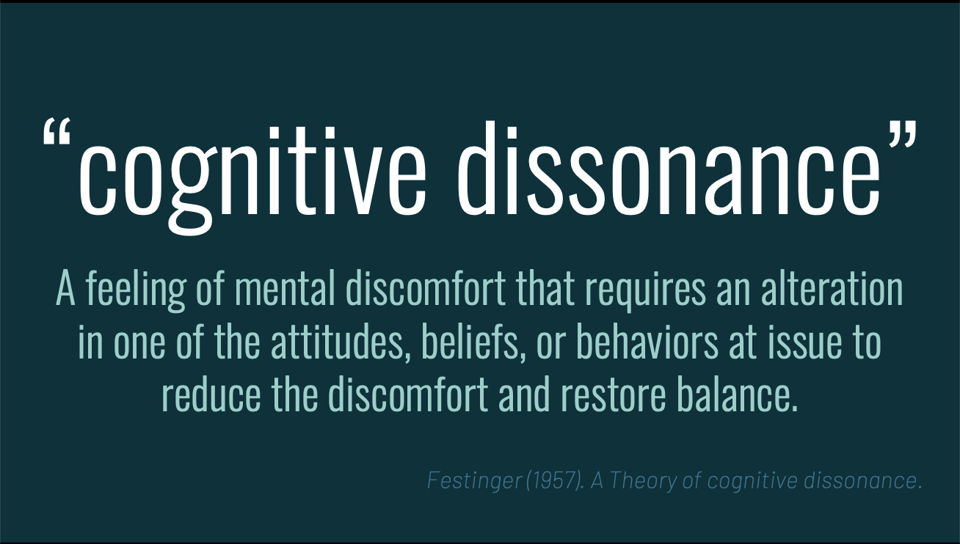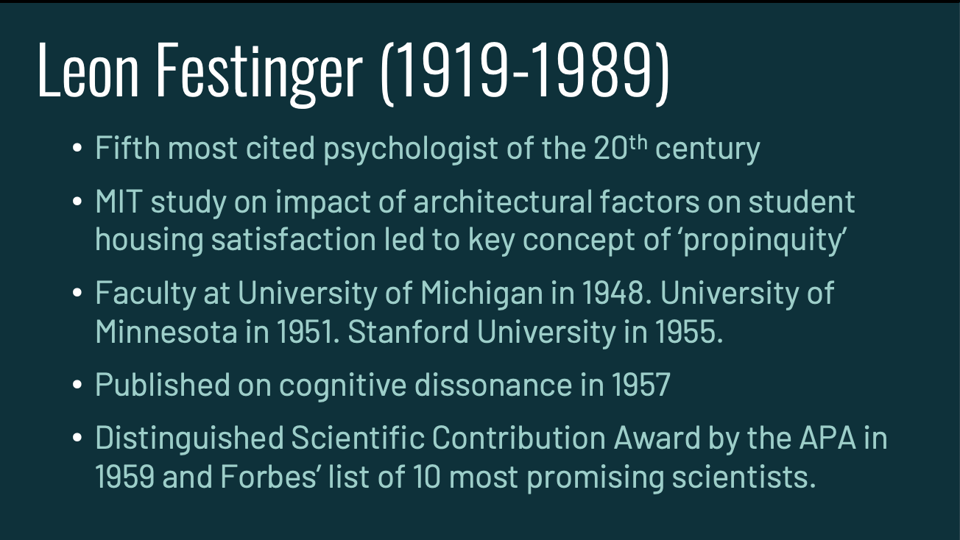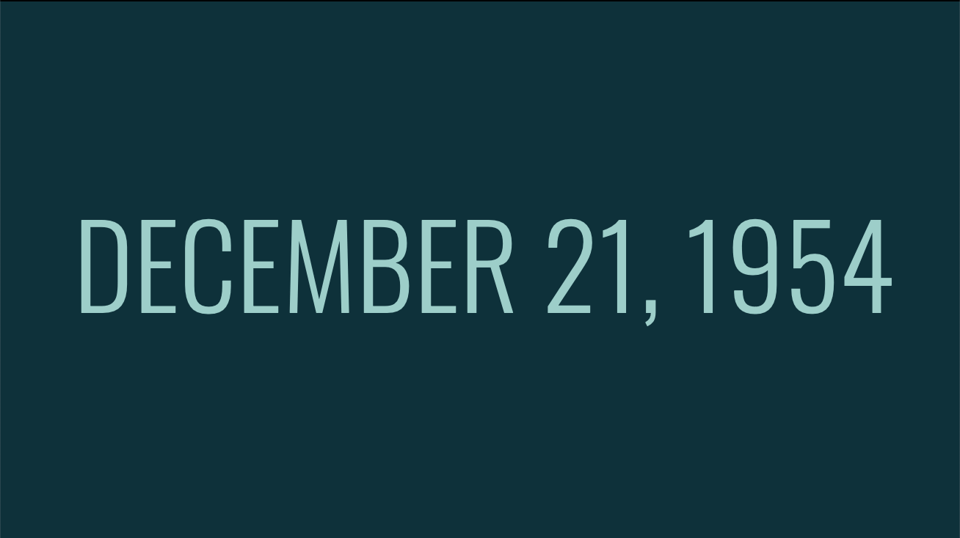Facts, feelings, and the end of the world
Scicomm & sensemaking as relates to cognitive dissonance
file under: PROCESS NOTES
this one is from: LIZ
Not long ago, Neil told me he was excited about the writing he was doing to update the Social Psychology textbook he co-authors. The topic is not something I ever studied, but it certainly informs the work that Liminal does, so I immediately got myself a copy. Within 25 pages, I’d encountered a powerful theory that is incredibly timely, and even better, it has an fantastic origin story.
The theory is cognitive dissonance - it describes the deeply unpleasant feeling we experience when two or more of our beliefs or behaviors are at odds, especially when our self-esteem is at risk. So for example, I want to be an ethical person and I genuinely worry about animal welfare and climate change, but I’m not vegan. I mitigate my dissonance by rationalizing my choices (“I am vegetarian and that’s more important”, “I support small family farms”, etc) in ways that convince me that I’m doing the best I can. The point is that it’s substantially easier for me to spend more money on butter and eggs than it is to permanently remove them from my grocery list. An observer could label that financially irrational.
Understanding cognitive dissonance is a key to understanding many of the otherwise inexplicable choices that people make.
Of everything I’ve learned in my career, this is the one idea I wish I could just magically transplant into the mind of every immunologist, ecologist, and other natural scientist I work with. Whenever I notice myself adding multiple exclamation marks to annotations, I start building slides. I began in an obvious place:

You can tell it’s the most important idea in that section of my talk - 115 point font means that I am not messing around! But annoyingly, everything else I’ve learned about communication in my career also tells me that this slide doesn’t get us terribly far. Saying “This is really important!” gets woefully diluted when there are a thousand other really important things competing for your attention.
So. What instead? People are generally more interested in other people than in abstract ideas, so I drafted a different slide, this time focusing on the impressive human who came up with the concept of cognitive dissonance in the first place. Meet Leon Festinger:

By the second bullet point I am entangled in defining propinquity1. It’s not that it’s too hard or that I think propinquity is unimportant, but as a path toward understanding my main point, it’s a disaster. This is so clearly not the way to do it.
But it CAN be done, and beautifully I think, just in a very different way—with a story.

Here’s how I tell it:
December 21, 1954 was the day the world was meant to end. That morning, a flood was going to inundate the planet and it would be the end of humanity… except for a small group of hardworking, faithful folks who would be whisked away in a spaceship that would rendezvous with them just outside Chicago. By the afternoon of December 21, 1954, there were only two problems: 1) no spaceship; and 2) worse, there was no flood.
Some of those faithful few had risked everything for this moment. They had left their jobs and families, abandoning their previous lives in preparation for the event. How would they cope with a failure of this magnitude? It turns out that they doubled down on their beliefs, deciding that Earth had been spared because of their faith. Instead of retreating, they went newly public, giving interviews they had turned down before, and working to recruit even more members.
And we know all this because a researcher named Leon Festinger had the strong working hypothesis that the world was not, in fact, coming to an end. Festinger and his colleagues went incognito and joined the group2 to observe the private conversations and behaviors of true believers faced with a spectacular and uncontested failure. Instead of being dissuaded, they became even more deeply entrenched. At the time, science couldn't explain it well. Increased investment in a demonstrably wrong belief is something we understand much better, thanks to the idea of cognitive dissonance.
So. I’ve used these slides in three different settings in the past month, and witnessed some wonderful breakthroughs as a result. In the latest iteration, once participants truly got the idea of cognitive dissonance, it unleashed a whole new set of ideas and questions. It was like a door suddenly burst open.
Conveniently, there’s also a word for ideas that are keys to doors like this: threshold concepts.
I’m going to be writing a little mini-series of posts about these in the coming months. I'm excited about the fresh energy, clarity, and explanatory power that threshold concepts can offer. I'll need as much of those things as I can get.
And in the meantime, I’ll offer this: we are all avoiding cognitive dissonance all the time. What I’m doing with this particular idea at this particular moment is taking a hard look at every aspect of my life where I can identify a gap between what I truly believe and what I’m currently doing. I'm sure that not all of my beliefs are correct - that's okay! As someone who loves science, I embrace the work of updating my priors. As someone who deeply interrogates my values, I welcome the charge to live more fully by them.
The world is ending: the world goes on. We figure out how we can cope by explaining it to ourselves and each other. The coping is the work. Let’s get to it.
Propinquity = the tendency for people to form relationships with those whom they encounter often. ↩
A method that IRBs and those of us with modern research norms & ethics would like a word or two about. In fact, if you want to join me in a deeper dive, there are excellent dissections and criticisms of whether this case study is even valid, given how much Festinger et al shaped the event by their presence and participation. Where I’ve landed for now is that the story is compelling, and I’m grateful to it for generating the curiosity that I need to better engage with all the data and analysis furnished by intervening decades of research and refinement. ↩